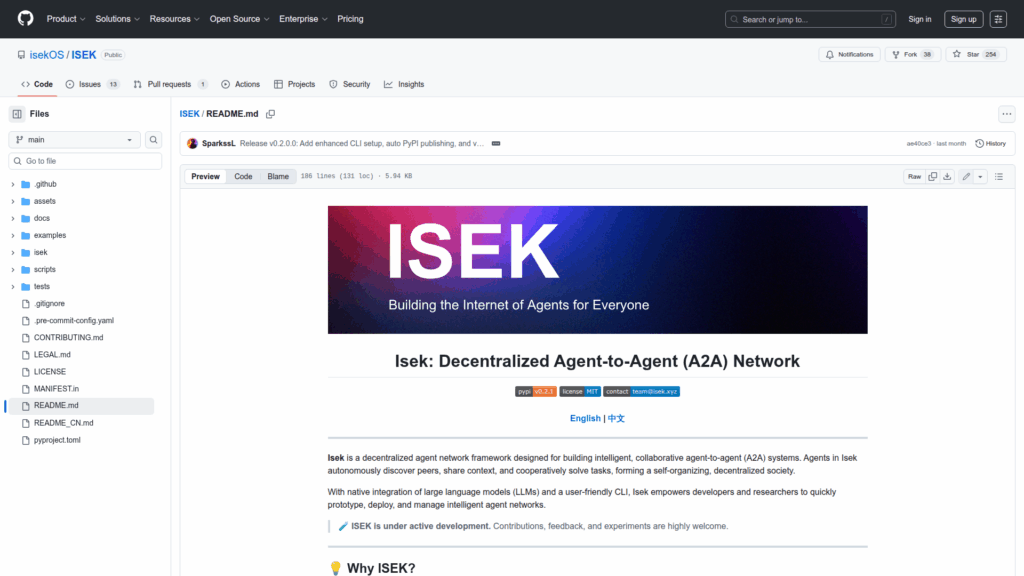Basic Information
Isek is a framework for building decentralized agent-to-agent (A2A) networks that enable intelligent, collaborative, self-organizing agents to discover peers, share context, and cooperatively solve tasks without centralized orchestration. The project targets developers and researchers who want to prototype, deploy, and manage multi-node agent societies that integrate large language models. It provides core modules for agent logic, node orchestration, inter-agent protocols, memory and state, model backends, team formation, and tools for composing multi-agent workflows. The repository includes a developer-friendly CLI, examples that range from single agents to team-based scenarios, and documentation to help users set up environment variables for model access. Isek emphasizes model-agnostic intelligence and distributed deployments from local clusters to global swarms.








